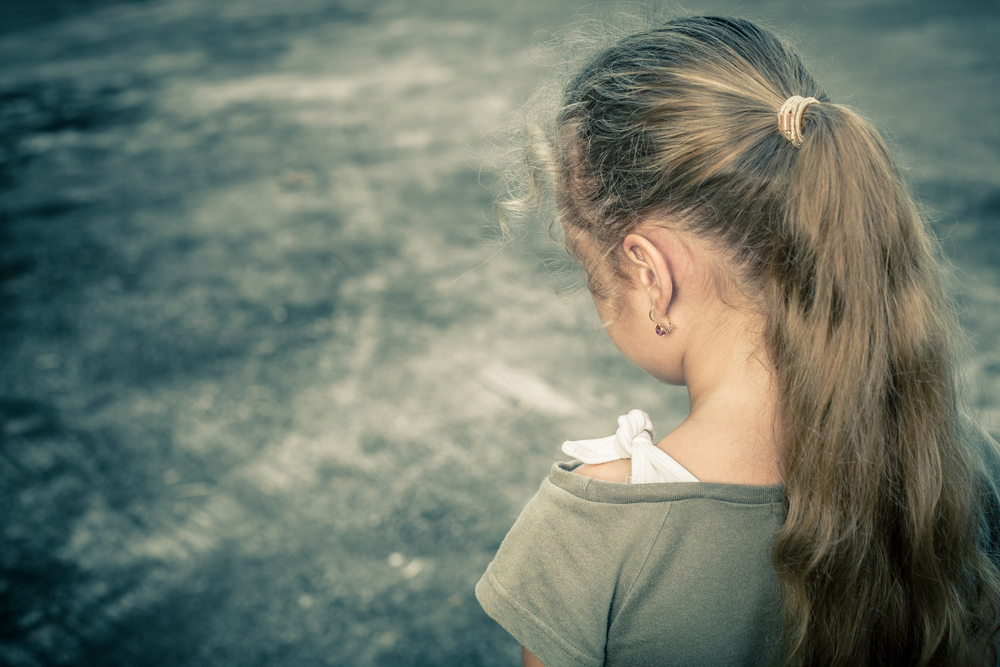
Every nine minutes, child sexual abuse occurs in the US and 82% of victims are female. Failure to report sexual abuse of a child impacts everyone. Cascading effects often occur, and if a report had been made, it could have prevented future abuse.
For 55+ years, CohenMalad, LLP has:
- Given power to victim’s voices
- Sought justice for the abuse victims face
- Offered compassionate counsel to victims
We know that child victims are vulnerable, and revictimization is a serious concern. Our team has been trained by mental health professionals to discover the facts of the abuse in the most caring, compassionate manner possible.
If you or a loved one is a victim of child sexual abuse, we’re here to help.
Contact us to schedule a free consultation.
Making the Right Choice for the Sake of the Child
Speaking up for a child is the right thing to do. You face a very challenging and potentially life-changing road ahead, but if you do not make the right choice, you risk more victims. Far too often, the abuser is a:
- Family friend
- Spouse
- In-law
- Family member
- Sibling
- Babysitter
You may know and care for the abuser, and in some cases, families are left in turmoil. Failing to report the abuse leaves the child vulnerable. Adults who do not file reports often do so because they believe the abuse will stop, or they don’t want the relationship with the abuser to be impacted.
If you’re not the protector of the child, who will be their protector?
Relationships with family members and friends can heal, and it will take time. Standing up for a child and making the right choice can stop abuse and may even stop you from legal consequences, too.
Failure to report sexual abuse of a child is not being the protector the child deserves. You can be a protector of children with the right approach.
What Should You Do to Be a Protector of Children?
If you’re to be a protector, you need to do the right thing for the child. It takes a lot of courage for anyone to ask for help when they’re abused, and every claim must be taken seriously. Support is the first step you want to take to protect a child.
Children cannot articulate abuse in the way an adult can, and while it may be difficult, do not compare the statement to what you expect the child to say.
Instead, you should:
- Report the incident to law enforcement
- Err on the side of caution and report even suspicion of abuse
If the church is involved, you’ll want to report the claim of abuse to civil authorities and church officials. We know from experience and after some Supreme Court decisions that clergy may not be required to report the claims if they were made to church leaders as part of a religious confession.
You may not believe the child, but you do have a duty to file the report. All too often, children go to adults for help, and they’re pushed aside. For example, one school district in Ohio ignored a student who:
- Claimed she was being sexually abused by a teacher
- Was harassed by students
- Dropped out because of the abuse
The girl, just 12-years-old, was hospitalized for self-harm. Complaints against the school suggest that they ignored sexual harassment and concealed the assault.
Teachers are often told of abuse, perhaps by their colleagues, and they don’t report it. Often, the outcome is the number of victims rises because the report goes unfiled, and the abuser is allowed to target other children.
Failure to report sexual abuse of a child may even be a criminal offense, and it will have an impact on your life and the child’s, too.
Criminal Offense (Misdemeanor vs. Felony)
States have their own laws that punish you for not reporting abuse. Your circumstances will dictate whether you’re charged with a misdemeanor or felony.
In some states, such as New Jersey, anyone who suspects child abuse is obligated to report it to the authorities. In other states, only individuals in certain professions are required to report. Violations of reporting laws can have significant consequences.
Misdemeanor Offense
Fines and imprisonment for not reporting suspected abuse and misdemeanor charges exist in 40 states.
Felony Offense
Certain states may upgrade the charges to a felony, such as Arizona, Connecticut, Florida, Illinois, Kentucky and Minnesota. Upgrading to a felony offense depends on the state and may include:
- Death of the child
- Incest or prostitution
- Second or more violations
Wyoming remains the only state in the country that does not have a penalty for non-reporting.
Mandated reporters may face even more severe consequences because they have a duty to report abuse.
Mandated Reporters
Who is considered a mandated reporter? You may be a mandated reporter if:
- You work with children or families on a professional level, such as being a teacher
- Clergy members, but this depends on the state
- All adults, which is required in some states
Since every state has its own laws, determining who is a mandated reporter is challenging. You may be required to report the abuse even if you’re a counselor, social worker, daycare provider, law enforcement, mental health providers and others in similar positions.
What are the Penalties for Failure to Report?
The failure to report sexual abuse of a child can have significant penalties. Those penalties will depend on whether the offense is a misdemeanor or felony and the state where the offense occurred.
A misdemeanor can be punishable by:
- Time in jail
- Fines
If the offense is a felony, the consequences are even more severe and include losing the right to vote and, potentially, the eligibility for certain state benefits.
In some cases, a plea bargain may be sought to avoid jail time. Alternative sentencing may also be possible through:
- A suspended sentence, which allows the court to impose a sentence at a later time if you do not comply with the requirements or commit a similar offense while the suspended sentence is imposed.
- Probation, during which you will be required to report to a probation officer and follow strict requirements ordered by the court.
- Work release, which means that you will serve time in a facility but will be released at specific times to go to work.
In some states, such as Maryland, mandated reporters can lose their licenses for failing to report. Along with the legal consequences, you must also consider the professional consequences of failing to report.
The Impact of Failure to Report
The failure to report sexual abuse of a child can have far-reaching effects on the abuser, the abused and officials.
Failure to Trigger Official Actions
Failing to report sexual abuse can also impact official actions. In a school setting, for example, teachers and faculty are required to respond.
Schools may accept reports from anyone, even if the individual is not associated with the institution. However, if the only person notified is the person who allegedly conducted the abuse, the school is not considered to be on official notice of the incident.
Failure to report abuse can also lead to a failure of official actions that can delay or prevent the abuser from being held accountable.
Delayed Consequences for the Abuser
When sexual abuse goes unreported, the perpetrator walks away, free to continue engaging in their criminal behavior. To make matters worse, if there are no consequences, the perpetrator may think their behavior is acceptable. They may continue to abuse others without fear of consequences.
Lack of Support for the Abused
The failure to report sexual abuse leaves victims and anyone harmed by the perpetrator’s conduct unable to get the support they may need during this difficult time. Victims may suffer emotional and mental consequences that progress over time and make it more difficult for them to develop meaningful relationships.
Anyone affected by the conduct, including witnesses, may also suffer guilt and stress for allowing the behavior to go unreported.
When and How to File a Report
If you suspect that a child is being sexually abused, you do not need to wait to have evidence to file a report. However, knowing when to report is crucial. Situations that require reporting include:
- A child has stated that they are being abused by an adult
- There are numerous and consistent warning signs of abuse or being at risk of abuse
- A child has stated that they have sexually abused another child
- A child says another child has been engaging in sexually harmful behaviors with them
- A child says they have been sexually abusive towards another child
- Child pornography has been discovered online
- An adult has stated that they have sexually abused a child
Failure to report sexual abuse of a child can have significant consequences for all parties, but especially for the child who is the victim of abuse.
The more relevant details and information you can provide, the better, including:
- Name, age, gender and other identifying information of all adults and children involved.
- The relationship of the alleged perpetrator to the victim(s).
- Information about disabilities or limitations of the victims.
Stick only to factual information or events that you have personally observed when filing your report to ensure the investigation moves forward as quickly as possible.
How to File a Report
The way in which you file a report will depend on a few factors.
- Mandated reports should check their state’s requirements for reporting procedures. Each state has its own policy regarding what is required for authorities to accept a report and the circumstances that require you to file a report.
- If you are involved in a family court case and there are concerns about sexual abuse, consult with your attorney about your next steps.
- Child Protective Services (CPS) will accept reports and conduct investigations if the alleged abuser is a parent, childcare provider, legal guardian or teacher.
- The local police department will handle reports and investigations involving abusers in non-caretaker roles, such as neighbors, acquaintances, family friends, etc.
Reports can also be filed with both CPS and the local police. Many states will allow you to file a report anonymously.
How CohenMalad Can Help
Failure to report sexual abuse of a child is serious. At CohenMalad, LLP, we have decades of experience representing survivors of sexual abuse and protecting their rights.
Contact our firm today to schedule a consultation and to learn more about how we can help with your case.



